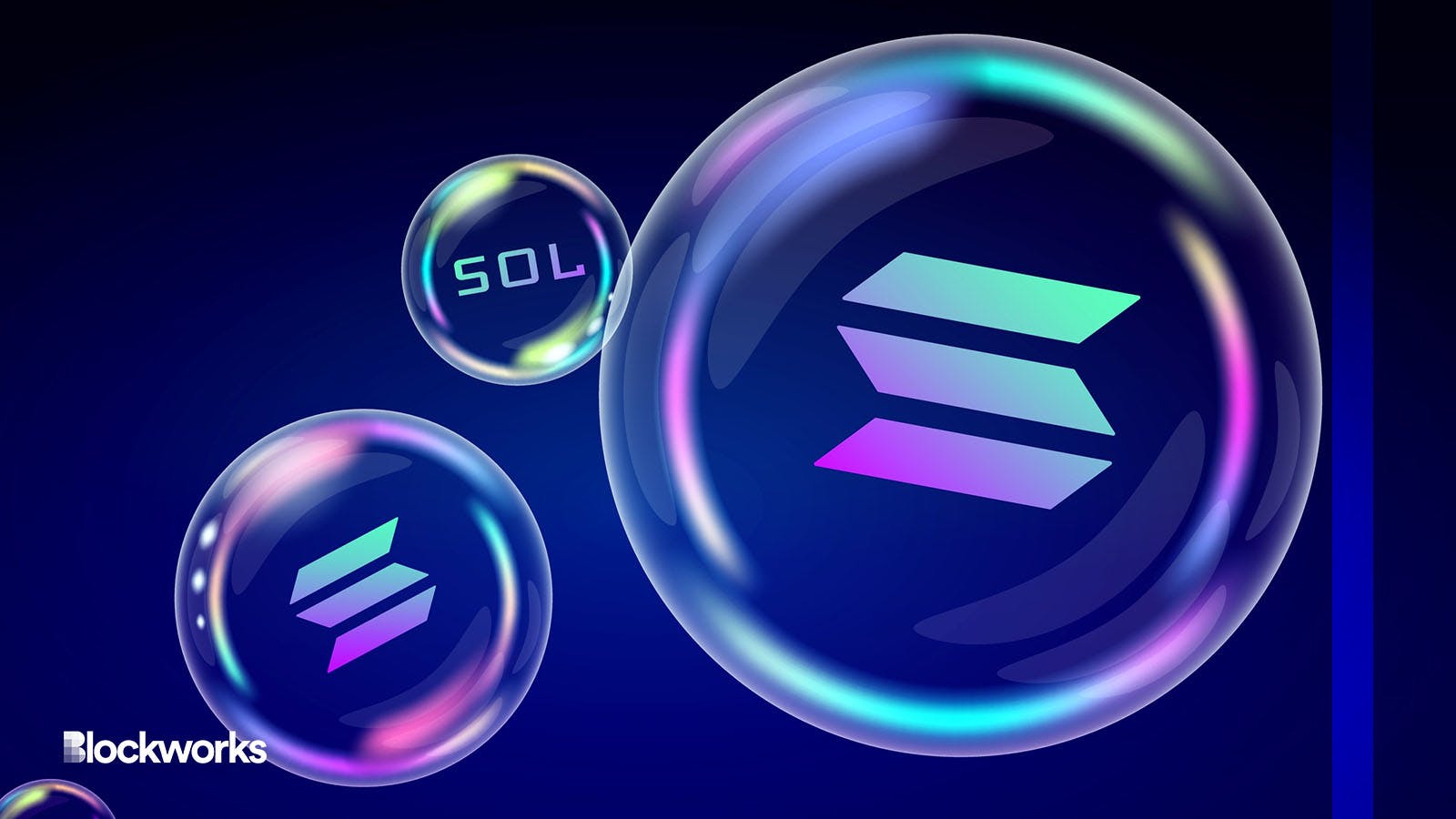Storing Solana NFTs On Chain Just Got More Affordable
Exclusive: New state compression tech is driving down costs of Solana NFT transfers, a Solana Foundation exec told Blockworks

Vladimir Kazakov/Shutterstock modified by Blockworks
The Solana Foundation has teamed up with a handful of ecosystem partners to make it cheaper to store NFTs on the blockchain.
It costs roughly 1,200 SOL ( about $24,000) to store 1 million NFTs on Solana today, but state compression — a novel technology that uses Merkle trees — is set to drastically reduce the associated transaction costs to roughly four SOL (about $103).
State compression started after developers at Solana Labs and Metaplex wanted to facilitate gasless experiences for users on the Solana blockchain, Jon Wong, a technical lead on the ecosystem engineering team at the Solana Foundation, told Blockworks in an exclusive interview.
Companies that could benefit from this type of technology include airdrop facilitators, as well as Web3 gaming developers who find it too expensive to build digital goods on a chain.
Wong in a separate statement described the technology as a “compression-friendly data structure” that “ allows developers to store a small bit of data on-chain and updates directly in the Solana ledger, cutting the data storage cost down dramatically while still using the security and decentralization of Solana’s base layer.”
On- vs. off-chain NFT storage
NFTs that are hosted on-chain are given a unique identifier.
On Solana, when you purchase an NFT, you have to pay for every byte stored on-chain, Wong said.
“How compression works is that it takes a large set of data and summarizes it into what is called a fingerprint using a data structure called Merkle tree,” he said.
Rather than having a bunch of NFT data on the blockchain, only a condensed version of the data is hosted on-chain in that arrangement. The remainder can be accessed off-chain through Solana remote procedure call (RPC) providers.
If any of the individual values that are stored off-chain change, the value stored on the blockchain will also change.
It’s like a receipt to prove that you purchased an item, Wong said. Your purchase may not physically be in your house or apartment. It may sit in a storage center. But your receipt verifies you as the product’s honor. And you will still be able to buy and sell it in a marketplace.
“From a consumer’s perspective, nothing changes,” Wong said. “[It] shows up in your wallet, you can send it, transfer it, operate in smart contracts, put it on marketplaces. So, nothing changes there. We’re just storing it in a different way.”
Although the technology has been available on Solana mainnet for a few months, there had not yet been any RPC providers which were able to facilitate these queries until now.
“Now is the moment that the circle has been completed,” Wong said. “People can create and transfer these NFTs…so from a consumer standpoint, they can now see and touch and feel these things in a way they weren’t able to before.”
Get the news in your inbox. Explore Blockworks newsletters:
- The Breakdown: Decoding crypto and the markets. Daily.
- 0xResearch: Alpha in your inbox. Think like an analyst.






